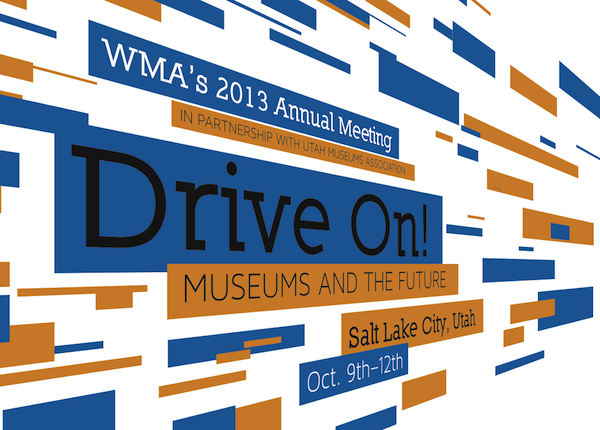By Ted Greenberg
A first glance at the Western Museums Association 2013 Annual Meeting Program
Once upon a time in a land far away, there was a museum with many objects that could not be shown. These objects were placed into storage for safekeeping. The museum curators kept collecting and there were more and more objects coming into the museum. As if by magic, the storage areas were able to house the objects with out any problems and the registrars and collection managers were happy........
Don’t we all wish this were the case? As the amount of objects brought into our institutions is ever increasing, sometimes it is necessary to renovate or upgrade the space to accommodate the objects. The topic specifically relates to renovating storage spaces in your museum, but not dealing with major construction issues in the whole institution. So I came to thinking, why not see if there are registrars, collection managers or other staff members who have dealt with this situation? There were a number of colleagues out there who stepped up wanting to share their stories. The following questions have been raised: When the opportunity to renovate existing spaces for storage, the impact on collections can vary from simple to very complicated solutions. Will the collections be moved to offsite locations or closed galleries? Travel on special exhibitions? Be an opportunity to inventory, photograph, condition check or even evaluate objects for eventual deaccession?
 On Saturday, October 12, of the WMA 2013 Annual Meeting in Salt Lake City, there will be a double session/mini-workshop that will explore implications that renovations can have on collection objects as well as staff, as 6 panelists present case studies, compare and contrast experiences from a cross section of museum types. Panelist presenting are Michelle Lynch, Idaho State Historical Society, Boise, ID; Meredith Miller, Registrar/Collections Manager, ARTECH, Seattle, WA; Carolyn Rissanen, Registrar, Collections and Information Access, Oakland Museum of California, Oakland, CA; Steve Comba, Assistant Director/Registrar, Pomoma College Museum of Art, Claremont, CA; Cindy Sutherland, Archivist/Collections Manager, Historic Fourth Ward School Museum and Archives, Virginia City, NV; Kathleen Daly, Fashion and Textile Specialist/Museum Technician, Brigadier General James B. Thayer Oregon Military Museum, Clackamas, OR; and myself as moderator.
On Saturday, October 12, of the WMA 2013 Annual Meeting in Salt Lake City, there will be a double session/mini-workshop that will explore implications that renovations can have on collection objects as well as staff, as 6 panelists present case studies, compare and contrast experiences from a cross section of museum types. Panelist presenting are Michelle Lynch, Idaho State Historical Society, Boise, ID; Meredith Miller, Registrar/Collections Manager, ARTECH, Seattle, WA; Carolyn Rissanen, Registrar, Collections and Information Access, Oakland Museum of California, Oakland, CA; Steve Comba, Assistant Director/Registrar, Pomoma College Museum of Art, Claremont, CA; Cindy Sutherland, Archivist/Collections Manager, Historic Fourth Ward School Museum and Archives, Virginia City, NV; Kathleen Daly, Fashion and Textile Specialist/Museum Technician, Brigadier General James B. Thayer Oregon Military Museum, Clackamas, OR; and myself as moderator.
The second session will continue with small group discussions in a workshop setting, led by the panelists. Potential guidelines that can be used for use by their museums, solutions and recommendations to devise working plans will be shared with all in attendance after the small group discussions. Major points and questions from all will be addressed from the final outcome so participants can walk away with concrete and useful information. These sessions will be fun and informative. Not just your talking head at you, but needing your participation to make this mini-workshop a success.
...and they all lived happily ever after....
To attend this session at the 2013 Annual Meeting, please visit: http://www.regonline.com/WMA2013
Ted Greenberg has served on the WMA Board for 10 years. Since 1976, he has been very active in the professional Registrar committees of the AAM and WMA and has served as an officer, chair of the nominating committees and program committees. He is currently an independent museum consultant specializing in registration and collection management and has consulted for museums, galleries and private collections. Previously, Ted has worked at at the Magnes Museum, Fine Arts Museums of San Francisco, Los Angeles County Museum of Art, and was an adjunct faculty member at John F. Kennedy University.








Add new comment